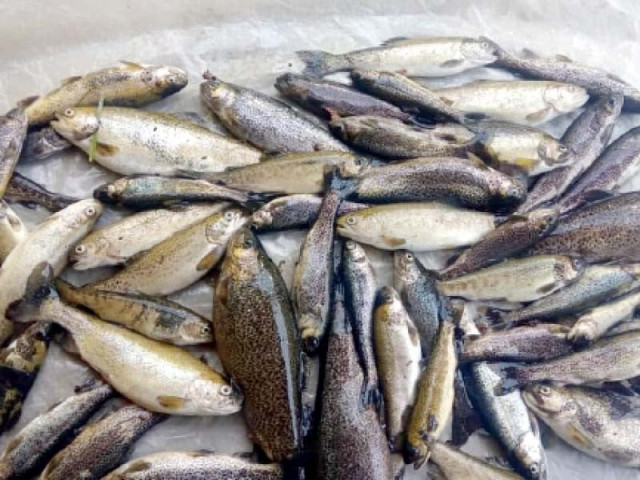Trout farming crumbles amid govt apathy
Farmers suffer amid fluctuating temperatures, frequent disease outbreak

The trout fish farming industry in the Kaghan Valley is on the brink of collapse due to government neglect and lack of support.
Following last year's devastating floods, trout fish farmers have suffered heavy losses, with millions of rupees worth of fish perishing. Despite the scale of the damage, the government has failed to take any meaningful steps toward the restoration of the affected farms.
The fluctuating water temperatures and frequent outbreaks of disease have further exacerbated the situation, causing severe losses to those involved in this once-thriving industry. However, the farmers remain deprived of any backing or supervision from the government or the fisheries department.
In July of last year, flash floods caused massive destruction in the Bhoonja Valley, wiping out several trout farms. To this day, most of these farms lie abandoned, with no rehabilitation efforts initiated despite the fact that many of them were built through government-funded Annual Development Programmes (ADPs).
Sources reveal that farmers attempting to revive their operations on a self-help basis are forced to purchase fish seed from Swat or Gilgit-Baltistan, incurring costs nearly four times higher than normal due to transportation and limited local supply. At the local level, no facility exists to support seed provision.
The Kaghan Valley has two trout hatcheries — one at Shinu Jarid, which is operational, and another at Lohar Banda, which was built at the cost of millions but now lies deserted, a glaring example of negligence by the fisheries department.
Trout farming, which was once a lucrative enterprise offering employment opportunities to many in the region, has now turned into a loss-making venture due to the lack of governmental support. Last year's mysterious disease outbreaks and flooding inflicted massive losses on farmers. This year, the crisis continues as fish seed remains unavailable, compelling farmers to travel long distances to source it.





















COMMENTS
Comments are moderated and generally will be posted if they are on-topic and not abusive.
For more information, please see our Comments FAQ